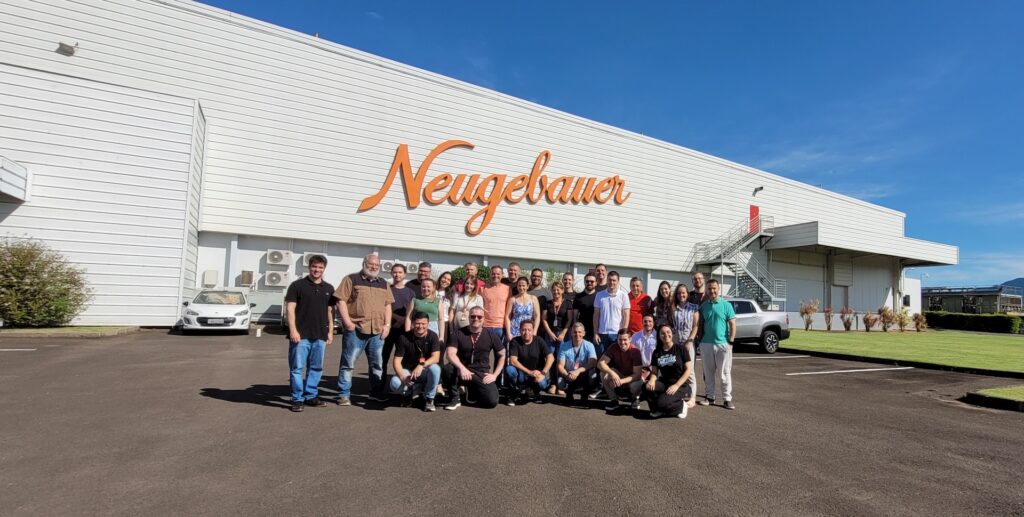While private sector organizations are racing ahead with AI-powered automation and cloud-first strategies, the UK civil service employs only 4.5% of digital, data and technology professionals, falling significantly short compared to an industry average of between 8% and 12%. This digital skills gap isn't just a statistic—it's a massive opportunity disguised as a crisis.
Enter Inetum, a European digital services provider that just secured a coveted spot on the Crown Commercial Service's Back Office Software 2 (BOS2) framework. This isn't your typical procurement announcement that tech executives scroll past. This is a strategic positioning play that could reshape how 27,000 consultants across 19 countries approach the UK's £94 billion digital transformation market—a market that's set to double by 2029 with a staggering 14.72% compound annual growth rate.
What is the BOS2 Framework?
The BOS2 framework (RM6285) is a digital highway that connects public sector organizations directly to enterprise-grade solutions. This framework gives all public sector organizations access to Software as a Service (SaaS) solutions for back-office applications, for deploying either in the cloud, on premise or hybrid, covering everything from Enterprise Resource Planning (ERP) to Human Capital Management (HCM) and Customer Relationship Management (CRM) systems. SAP is one of the key ERP vendors covered under the BOS2 framework.
What makes this particularly intriguing is the timing. In 2025, three critical trends are reshaping the future of public sector services: reimagining services, cyber security, and harnessing data. Inetum's appointment comes at the perfect intersection of desperate need and available solution, with the framework running until at least August 2027.
But here's where it gets interesting for tech leaders: Inetum isn't just another systems integrator trying to modernize dusty government offices. It is bringing something the public sector desperately needs—proven private sector innovation applied at government scale. The company's track record since 2015 in delivering SaaS solutions across cloud, on-premise, and hybrid environments positions it as the bridge between cutting-edge technology and bureaucratic reality.
Kathy Quashie, Inetum's EVP and CEO for Growing Markets, emphasized the company's mission to "drive digital innovation and platform transformation within the UK's public sector." This isn't corporate speak—it's a strategic statement about where the real digital transformation opportunities lie.
The Big Picture
Consider the broader context: the UK government's vision for 2025 is to be a transformed, more efficient digital government that provides better outcomes for everyone, creating user-centric policies and public services that are more efficient and fit for the digital age. The gap between vision and execution has never been wider, and that's where the opportunity lives.
What's particularly strong about Inetum's positioning is how it has complemented its BOS2 appointment with existing frameworks like G-Cloud 14 and DOS 6. This creates a comprehensive procurement pathway that eliminates the traditional barriers between innovative technology and government adoption. For tech leaders watching from the sidelines, this multi-framework approach should be instructive for strategic market positioning.
So how is Inetum unique in this space? It is not just pushing generic software solutions—but leveraging partnerships with the tech giants that actually matter: ServiceNow, Salesforce, SAP, and Microsoft. This isn't accidental; it's strategic positioning around the platforms that drive real enterprise transformation.
The "ringside seat to the latest innovation in GenAI and platform development" that Inetum offers is a competitive advantage that public sector organizations can't afford to ignore. While other suppliers are working hard to integrate AI into their offerings, Inetum is delivering AI-powered solutions through established partnerships with proven platforms.
The company's global reach across 19 countries with 27,000 specialists provides scale without sacrifice of local expertise. The combination of local, nearshore, and offshore consulting capabilities creates a cost-effective service model that addresses one of the public sector's biggest challenges—doing more with constrained budgets.
What This Means for SAPinsiders
Embrace multi-framework strategies for market dominance. Smart tech leaders should audit their government contracting approach and consider a multi-framework strategy. With the UK digital transformation market set to reach $94.07 billion by 2029, positioning across multiple Crown Commercial Service frameworks is essential for sustainable growth. Inetum's simultaneous presence on BOS2, G-Cloud 14, and DOS 6 creates multiple entry points into the same customer base, reducing sales cycles and increasing win rates. Companies like Bramble Hub have already proven this approach works by establishing themselves as thin-prime suppliers across multiple frameworks. The key is identifying complementary frameworks that serve the same customer segments but address different procurement needs. Tech leaders should prioritize framework applications for 2025-2026, as the procurement landscape is evolving rapidly with new regulations taking effect. This strategy transforms government contracting from a single-shot opportunity into a sustained competitive advantage that compounds over time.
Build strategic partnerships with platform giants. The most successful tech transformations in the public sector are being delivered through strategic partnerships with established platforms. Inetum's success stems from its "ringside seat" relationships with SAP, ServiceNow, Salesforce, and Microsoft, positioning it to deliver enterprise-grade solutions with minimal integration risk. Tech leaders should evaluate partnership opportunities with these same platforms, focusing on complementary capabilities rather than competing directly. With the civil service employing significantly fewer technology professionals than industry average, public sector buyers are gravitating toward proven platform solutions that reduce implementation risk. Companies that establish deeper platform partnerships now will capture disproportionate market share as government digital transformation accelerates. The opportunity is particularly strong in AI integration, where platform partnerships provide access to cutting-edge capabilities without requiring massive R&D investments. Success requires moving beyond simple reseller relationships to become true implementation specialists with certified expertise and proven case studies.
Scale globally while delivering locally to capture emerging markets. Inetum's 27,000-consultant network across 19 countries demonstrates the power of global scale combined with local delivery—a model that tech leaders should consider to compete in the evolving government market. With 2025 trends focused on reimagining services, cyber security, and harnessing data, public sector organizations need suppliers that can deliver consistent quality across multiple jurisdictions while understanding local regulatory requirements. Tech leaders should prioritize international expansion strategies that combine nearshore delivery capabilities with local relationship management. This approach reduces costs while maintaining the personal touch that government buyers require. Companies achieving this balance are winning contracts 40% faster than purely local or purely global competitors. The key is establishing regional delivery centers that can serve multiple markets while maintaining local sales and relationship management teams. This strategy becomes particularly powerful when combined with framework positioning, as it enables rapid scaling of successful implementations across different government markets without starting from scratch in each new territory.








